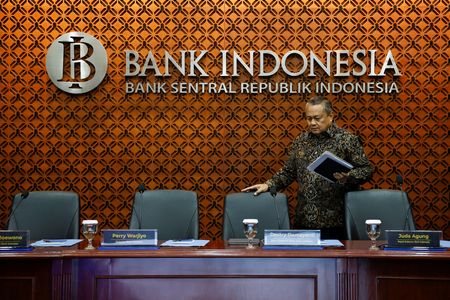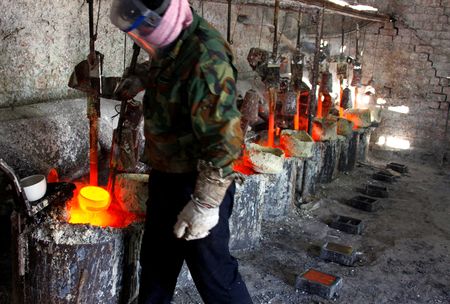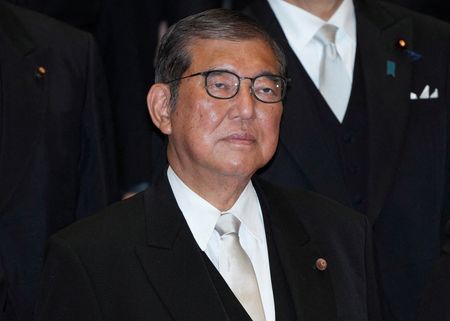By Gayatri Suroyo and Stefanno Sulaiman
JAKARTA (Reuters) – Indonesia’s central bank kept interest rates steady on Wednesday, emphasizing its focus on stabilising the rupiah currency amid global uncertainties, but said further easing to prop up economic growth is only a matter of timing.
The benchmark 7-day reverse repurchase rate was held steady at 5.75%, as expected by 26 out of 35 economists polled by Reuters. The remaining nine had predicted a cut. Bank Indonesia also left its two other policy rates unchanged.
Wednesday’s decision followed a rate cut in January that markets had not expected. In the current cycle, BI has cut rates twice since September.
Southeast Asia’s largest economy grew 5.03% in 2024, roughly similar to the previous year and in line with expectations, but the pace was the slowest in three years and far behind President Prabowo Subianto’s 8% target.
Meanwhile, the strong U.S. dollar and global trade disputes have put pressure on the rupiah and other emerging market currencies.
Acknowledging that inflation was low and the domestic economy needed stimulus, Governor Perry Warjiyo said there is room for BI to cut interest rates further, but the timing depends on global dynamics.
Uncertainty regarding U.S. trade policy, the U.S. fiscal deficit, rising treasury yields as well as the Federal Reserve’s monetary easing path was the main consideration to keep rates unchanged for now, he said.
“We still see room for further interest rate cuts … As for the timing, we must consider global dynamics,” Warjiyo told a press conference.
“We fully support the government’s programmes. We are with the government, we want high economic growth,” he added.
Warjiyo said BI has intervened nearly everyday to support the rupiah, which this month fell to its weakest against the U.S. dollar since June last year.
However, he noted the rupiah has been largely stable against its peers and currencies of the country’s main trading partners, predicting it would get further support from the government’s policy mandating a one-year retention of proceeds from companies’ resource exports.
“We view this (Wednesday’s decision) as a temporary pause driven by global uncertainty and rupiah underperformance, with borrowing costs likely to decline further in first half of the year,” said DBS economist Radhika Rao.
Capital Economics said BI appeared “a little more hawkish” than during the January meeting, but the consultancy still expects 150 basis points of rate cuts this year.
“Importantly, Governor Warjiyo defined currency stability as a stable exchange rate relative to its peers, and not just against the U.S. dollar,” Gareth Leather, the consultancy’s senior Asia economist, wrote in a note to clients.
BI also said it would allow banks to keep a lower level of required reserves from April 1 if they lend to priority sectors like property, part of a policy BI calls “macroprudential liquidity incentive”, aiming to free up 80 trillion rupiah ($4.90 billion) gradually for property lending.
($1 = 16,330.0000 rupiah)
(Reporting by Gayatri Suroyo, Stefanno Sulaiman, Fransiska Nangoy and Ananda Teresia; Editing by John Mair and Kim Coghill)









